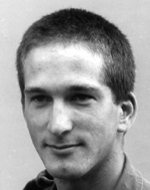Ben Narkis and Assaf. He was born on March 13, 1972, in Kibbutz Ma’agan Michael. When Zohar was two years old, his parents separated. His childhood and youth were spent on Kibbutz Ma’agan Michael. Zohar studied at the kibbutz elementary school and in the regional high school “Hof Hacarmel”. He was a curious child, who wanted to understand everything in depth. He stood out for his talents in the real professions, but also expressed himself in writing. He was not a diligent pupil, but a gifted one. At the age of fifteen, Zohar traveled with his father and wife Lin to the United States, where he succeeded in his studies and acquired the English language. In a letter to his mother and to Nati, he wrote: “I received your package, it’s really wonderful, I really miss you and can not wait for the summer to see you again …” A year later, Zohar returned alone to Israel, to Kibbutz Ma’agan Michael. He continued his studies at the Hof Hacarmel School, maintaining close ties with his mother at Kibbutz Gesher, and is sponsored by his grandparents at Maagan Michael. In one of his letters, Zohar wrote to his father and Laline, who were in Chicago: “What frightens me more than the intifada, more than the service in the territories, is to hear that a group of Israeli Jews threw stones at Arab cars or beat Arabs, or destroyed property. I intend to be a great head of the army … I asked for a pilot course or an elite combat unit … “. Lynn and Assaf returned a year later to be with him before he joined the army. In his final thesis at the end of the twelfth grade, Zohar chose an innovative medical subject: “The elimination of liver cancer by freezing,” a work that earned him a high grade and high esteem, He was a model son, devoted his time and expressed his love for both families, was a wonderful brother to all his brothers and sisters, and at the end of February 1991, Zohar was recruited for service He was required in the IDF and went on a pilot course After a year he dropped out of the course and was assigned to the Artillery Corps. Zohar was disappointed in his appointment, claiming that the unit was not sufficiently combatable. He went to an officer’s course, received the rank of lieutenant colonel and was assigned to serve in the Yekal, on the Lebanese border. “I asked to serve in Lebanon,” he told his father at the end of the officers’ course. “This is the place where I can contribute the maximum.” On May 18, 1993, Zohar joined an elite paratrooper force, which took action against a Hezbollah base in the Al-Luiza area of the eastern sector of southern Lebanon. Zohar demanded that he take this action and did not give up until he received the permit. The force encountered terrorists who opened fire at close range. The paratroopers immediately responded with fire. In the exchange of fire, Zohar was killed. Lieutenant Israel Tzur-Zvi was killed. Zohar took a video camera with him for a few minutes before the fire opened, thus perpetuating his last moments. In his youth, Zohar wrote: “Time is frozen in only two cases: by photography or by love.” He was laid to rest in the military section of Kibbutz Ma’agan Michael cemetery. Survived by his parents and their partners, three sisters – Hila, Shahar and Liron and two brothers – Oriya and Nadav. He was twenty-one years old when he fell. After his death, Zohar was promoted to lieutenant. Defense Minister Yitzhak Rabin wrote to the family: “Lieutenant Zohar Halamish gave his life for his homeland … He was an ambitious soldier dedicated to his work and his job … He contributed and initiated many projects, and he radiated happiness and joy to those around him.” In a letter of consolation to the family, the unit commander wrote: “Zohar fell in battle in short ranges while he used the weapon and fought bravely and with determination … I knew Zohar in harsh fire incidents and in pursuits in the most dangerous places”From the first moment, he demonstrated confidence in his professional knowledge and his peace of mind, and Zohar pushed forward the issue of firing the brigade and quickly created trust and closeness with the brigade officers.” An official officers’ club was named after Marjayoun. Zohar has left a rich and amazing estate: photographs he took, paintings, poems and writings. Sections of philosophy, thoughts of love and thoughts. Some of his songs revolve around the theme of death, and one song is a kind of eulogy: “My graves will sprout green lichens and colorful wild flowers around … My blood will sprout red roses / and lullabies for your children …” At his mother’s request, Yair Rosenblum composed a melody for this song. Part of all these files in the book “What will not say words.” Naomi Zorea, a member of Maagan Michael, who knew Zohar from the day he was born, wrote in his memory: “A tall boy, a little different, living with the company and outside it, a child attentive to a special world of words, Which had the stubbornness, the curiosity and the hunger to know and to experience. “
